|
|
|
|
Nau mai haere mai, welcome to this week’s newsletter.
Retirement is meant to be a time when we can kick back, relax and enjoy life after decades of work. But a growing number of New Zealanders are facing poverty in their later years.
As explained by the University of Auckland’s Claire Dale, a sizeable minority of New Zealanders aged 50 to 65 are caught in a perfect storm ahead of retirement and are renters due to the skyrocketing cost of houses. But this group was also mid-career when KiwiSaver was created in 2007, meaning they are also unlikely to have a significant savings nest egg in the government’s investment scheme.
As Dale points out, even “Treasury has raised concerns that this mixed group of baby boomers and generation X will not be able to financially manage retirement on their own.”
There’s plenty more to read here and on our homepage, including Massey University’s Robert McLachlan on why New Zealand’s previously huge per-capita aviation emissions can’t be allowed to climb again with the return of international
travel now borders are opening.
Until next week, take care and mā te wā.
|

|
Debrin Foxcroft
New Zealand Deputy Section Editor
|
|

Claire Dale, University of Auckland
Old age poverty is looming for thousands of New Zealanders who are going into retirement without a house, without savings and facing high costs of living.
|
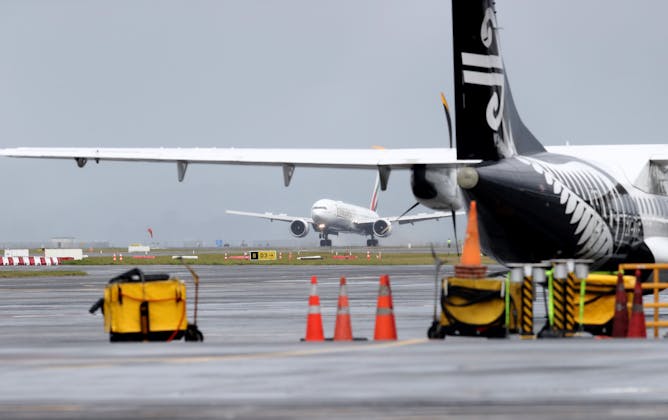
Robert McLachlan, Massey University
Before the pandemic, New Zealand’s emissions from domestic flights were 4.9 million tonnes of carbon dioxide, up by 43% since 2014 and the sixth highest in the world per capita.
|

Robin Gauld, University of Otago
The New Zealand government is set to introduce sweeping reforms to the country’s health system. But without changes in how the system is funded, will the reforms achieve their goals?
|

Robert Hamlin, University of Otago
Petrol prices have spiked, forcing governments to step in to reduce costs. But will the rising prices actually force drivers out of their cars, reducing consumption and carbon emissions?
|

Gregory Camp, University of Auckland
As this year’s Oscar nominees for best original music show, Hans Zimmer has become the John Williams of his generation.
|

Karly Burch, University of Otago
It is impossible to label nuclear power as sustainable without taking into account the entire life cycle of a nuclear reactor and the industry’s exposure to environmental and geopolitical risks.
|

Michael Plank, University of Canterbury; Dion O'Neale, University of Auckland; Emily Harvey, University of Auckland
Vaccine passes have outlived their usefulness, at least for now. But as New Zealand’s Omicron wave begins to subside, other public health measures remain vitally important.
|
From our foreign editions
|
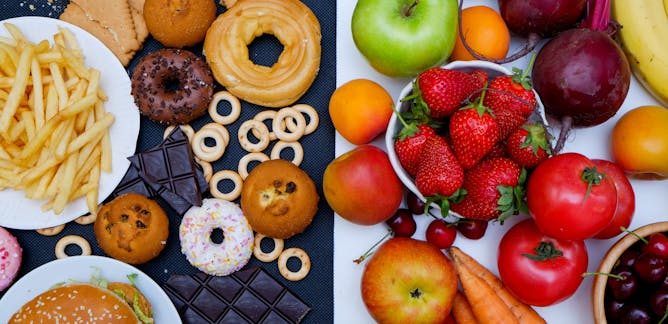
Kim Anastasiou, Deakin University; Mark Lawrence, Deakin University; Michalis Hadjikakou, Deakin University; Phillip Baker, Deakin University
Ultra-processed foods that contributed the most dietary energy for Aussies included ready-made meals, fast food, pastries, buns, cakes, breakfast cereals, fruit drinks, iced tea and confectionery.
| |

Ari Mattes, University of Notre Dame Australia; Claire Whitley, Flinders University; Gregory Camp, University of Auckland; Harriette Richards, The University of Melbourne; Tom Clark, Victoria University
The Power of the Dog may have lead the pack when it came to nominations, but the big winner of the night was the understated CODA.
|

Pauline von Hellermann, University of London
Palm oil is one of the 21st century’s most contentious agricultural commodities, but its relationship with humans goes back thousands of years.
| |

Francois Richer, Université du Québec à Montréal (UQAM)
Emotions play a key role in many types of spontaneous thoughts. Even microemotions — which are often fleeting and unconscious — can affect thoughts and influence attention.
|
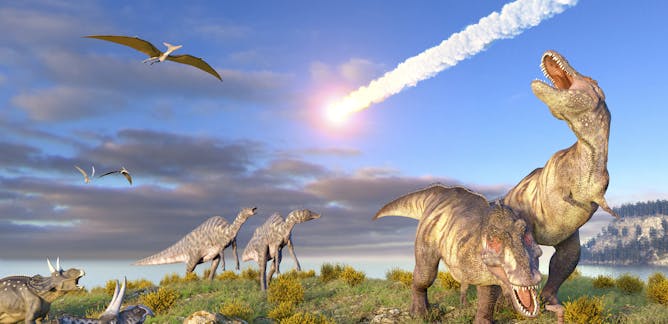
Brian Lovett, West Virginia University
Cockroaches have been on Earth far longer than humans and may outlast us. Here are a few reasons why.
| |
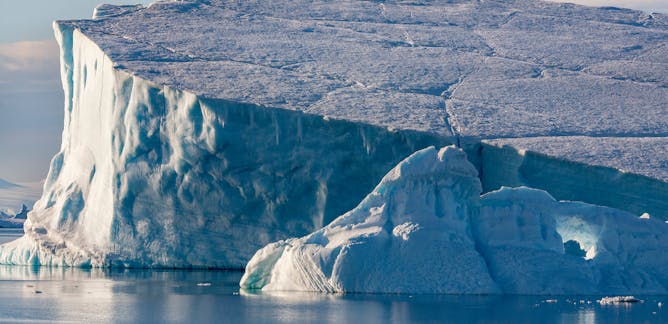
Hilmar Gudmundsson, Northumbria University, Newcastle; Adrian Jenkins, Northumbria University, Newcastle; Bertie Miles, University of Edinburgh
For the first time since satellites started studying the continent, East Antarctica has lost an entire ice shelf.
|
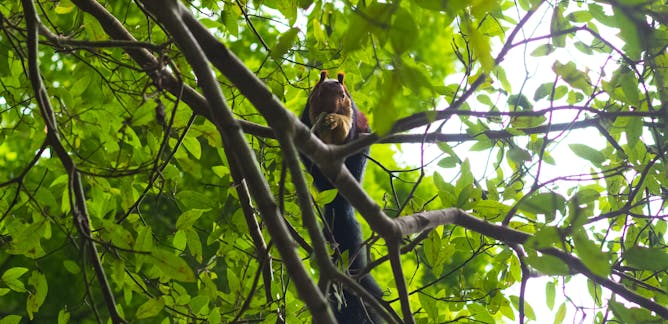
Danielle Parsons, The Ohio State University; Bryan Carstens, The Ohio State University
Roughly 90% of species on Earth are believed to be undiscovered. Whether researchers will be able to identify them before they go extinct is unclear.
| |

Edward Armston-Sheret, Royal Holloway University of London
A series of misfortunes and bad decisions led to the untimely death of the arctic explorer Captain Scott and his team.
|
|
|
| |
| |
| |
| |
|
|
|
|
|
|
|